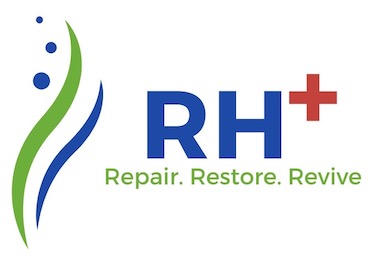Cardiovascular Health

Cardiovascular health is of prime importance because statistics show that 40-50 million people suffer from Cardiovascular Disease (CVD) in India. It comprises of 70% urban and 30% rural population. 1/5th of the deaths happening in India is due to Cardiovascular disease. Cardiovascular diseases are usually mediated through different pathways either singularly or in conjunction with one another.
Myths about CVD
- The primary cause of heart disease is Cholesterol
- High cholesterol diet or eating eggs might increase the risk of heart disease
- Total LDL (Low Density Lipoprotein) is bad cholesterol
- Total HDL (High Density Lipoprotein) is good cholesterol
- Fasting blood sugar of 100mg /dl is safe or normal
- Normal body weight reduces the chances of heart disease
Causes of Heart Disease
- Inflammation
- Oxidative Stress
- Vascular Autoimmunity
- Dyslipidemia
- Blood Pressure
- Blood Sugar
- Obesity/increased body fat
- Genetics
What is Inflammation?
The common and popular perception about heart disease is that it is the hardening of arteries (atherosclerosis). We used to believe that the more saturated fat or cholesterol rich diet we eat, the more it is going to get deposited as fat in the lumen of arteries, thereby hardening or narrowing the arteries. There was a belief that narrowing of arteries can lead to high blood pressure and this blockage then leads to heart attack which is also true in its own sense.
But what most of us is not aware is that the inflammation can do more harm than high cholesterol count. Inflammation is a natural process that occurs in the body, which provides protection against any infection or damage. When there is an infection by bacteria or pathogen or injury, body’s immune system tries to inhibit that infection or injury further by producing redness, swelling and increasing the number of lymphocytes and plasma at the site of infection. Inflammation is vital against acute infections, injuries and is important for survival. But problems arise when this process becomes chronic, and the immune system also starts becoming active against infections or injuries by damaging or killing its own cells. From here degeneration starts and this results in degenerative diseases like arthritis, diabetes and heart diseases.
Oxidative Stress & Heart disease [Study]
Oxygen is needed by every cell of our body to produce energy. It is a controlled process but unfortunately it also generates dangerous byproducts. These include free radicals – electronically unstable atoms or molecules capable of stripping electrons from other molecules in an effort to achieve stability. In this process they create even more unstable molecules. Our body has a defense system called Antioxidants to neutralize these molecules. The body manufactures primary antioxidants indigenously such as Glutathione Peroxidase (GP) and Superoxide Dismutase (SOD), while few like vitamins (C & E), carotenoids (beta carotene & lycopene), flavonoids (fruits) and polyphenols (green tea & herbs are obtained from diet.
When there is an imbalance between the production of free radicals and the supply of antioxidants needed to neutralize them effectively, then a phenomenon known as Oxidative stress arises. This Oxidative stress (excess free radical production) can damage the LDL particles by oxidizing them. Oxidized LDL can be one of the accurate predictor of heart diseases as it might do microscopic damage to the arterial wall. This can further lead to the building up of plaque and other toxic substances.
 Endothelium Dysfunction
Endothelium Dysfunction
Endothelium (or tunica intima) is the smooth inner lining of a blood vessel or artery. It is just one cell deep and serves various functions.
- Act as a barrier by allowing specific substances to pass from blood to the artery
- Control inflammation and oxidative stress
- Maintain viscosity of blood for easy flow
- Regulate blood clotting factors
- Maintain blood pressure, arterial integrity and elasticity
- Supports immune system by controlling the production of certain protein,interleukin and kappa B factors
Any damage to the endothelium will prevent its ability to serve important functions mentioned above, and this condition is known as Endothelium dysfunction. It can further lead to issues like thickening of arteries & endothelium, inflammation, oxidative stress, autoimmune dysfunction of vascular system.
Causes of endothelium dysfunction or damage
- High Sugar
- Heavy metals or toxins
- Cigarette smoke
- High blood pressure
- Elevated homo-cysteine levels
- Chronic infections like autoimmune disease
- Oxidised LDL Cholesterol
- Increased Saturated fat intake
- High intake of trans fatty acids
From above you can infer that there are a plethora of factors, which lead to heart disease. It is not merely an increase in the blood cholesterol count. Measuring cholesterol is one factor and having them in the normal range doesn’t guarantee that you are safe.
Blood Tests associated with Heart disease
- Hs-CRP
- Homocysteine
- Vitamin D
- Oxidised LDL
- LDL particle size and number
- Sodium to potassium ratio
- Magnesium levels
- CoQ enzyme levels
- Iron and ferritin levels
- Testosterone
- Fibrinogen
- B12 and folic acid
- Fasting glucose and insulin
- Heavy metals
- Triglycerides
- Lipoprotein A
- Apolipoproteins A1 and B
RH+’s approach towards Cardiovascular health
As it is evident dietary habits, lifestyle factors and nutritional status play a major role in the regulation of inflammatory processes and keep oxidative stress under check. Cardiovascular health is not about cholesterol numbers and blood pressure, rather it is a complex process regulated by an altogether different mechanism.
Food in fact is Medicine. Poor quality, unhealthy food can give rise to diseases. On the other hand, healthy food at the right time and in the right combinations can prevent diseases and associated complications in future.

